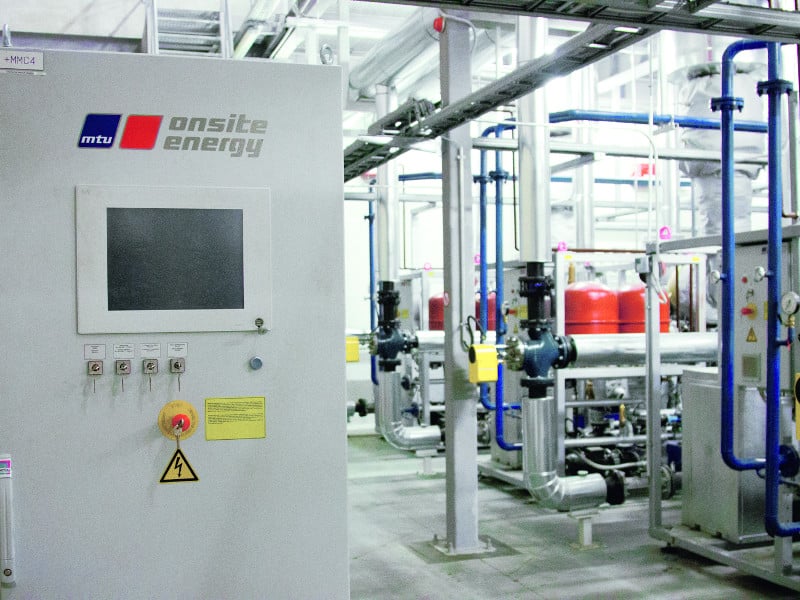At Curtis Power Solutions, we supply combined heat and power (CHP) (also known as co-generation) systems that use natural gas as a fuel source.
We leverage the superior design and engineering of Rolls-Royce gas generator sets to reduce energy costs and improve the environmental profile of hospitals, hotels, greenhouses, schools and university buildings, data centers, high-rise office and multi-unit residential buildings, and other facilities.
If a building has year-round demand for electricity and heat or hot water, CHP systems help increase energy efficiency and lower utility costs while minimizing the risk of power disruptions.
CHP systems function much like a boiler system for supplying building heat and hot water, with the added benefit of simultaneously supplying electricity for building electrical loads.
For CHP systems, a natural gas-fueled engine is used to drive a generator and produce enough electricity to satisfy the building load. The hot exhaust gases and jacket water heat from the engine are fed into a heat recovery unit and transferred to a hot water or steam circuit. We can also integrate an absorption or adsorption chiller to configure a combined cooling, heat and power (CCHP, or tri-generation) system to generate chilled water for air conditioning or refrigeration.
Our natural gas CHP systems provide energy efficient up to 90%, and excess electricity can be sold to utilities and fed into the public grid. With their high-performance and reliability, CHP systems allow businesses to avoid downtime caused by power outages, and for buildings in pursuit of LEED certification, the reduction of greenhouse gas emissions provides valuable energy efficiency credits. The total energy savings of implementing a CHP or CCHP system can deliver a ROI in a little as two to three years, depending on local energy pricing and utility policies. For more information about CHP implementations or to schedule a consultation, contact us today.
.png)






